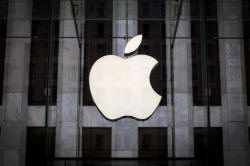Apple strategy in 'smart home' race threatened by Amazon
 Send a link to a friend
Send a link to a friend
 [January 27, 2017]
By Stephen Nellis [January 27, 2017]
By Stephen Nellis
SAN
FRANCISCO - In less than a year, Amazon's combination of the Echo
speaker system and the Alexa voice-controlled digital assistant has come
close to delivering on the elusive promise of easy-to-use technology
that can control gadgets in the home with a few spoken words.
Yet Amazon.com Inc's surprise success sets up a long-term battle
with Apple Inc. <AAPL.O> and Alphabet Inc's Google for primacy in the
connected household. And the contours of that competition are following
a classic tech industry dynamic.
Amazon is pursuing an open-systems approach that allows quick
development of many features, while Apple is taking a slower route,
asserting more control over the technology in order to assure security
and ease-of-use.
The strategic importance of the "connected home" niche looms large:
Amazon wants a way to own its customer interactions -mainly shopping
online - without an Apple phone or a Google Web browser as an
intermediary.
Apple needs to keep the iPhone at the center of customers’ lives, and
has built a whole home automation architecture, called Homekit, into its
smartphone.

Google, for its part, is investing heavily in both intelligent assistant
software and home-automation devices like the Nest thermostats and, more
recently, the Google Home speaker. But Google is behind in the race,
with its speaker only hitting the market in November and compatible with
a handful of gadgets beyond Nest and Dropcam, which the company also
owns.
“When the iPhone rolled out in 2007, everyone developed [software] for
that. Right now, everyone is developing for the voice-activated
Internet,” said Mark Mahaney, an analyst and managing director with RBC
Capital Markets.
Mahaney estimates Amazon sold as many as 10 million Alexa-enabled
devices over the holiday season. Google hasn't disclosed sales for its
Home speaker. Apple has declined to comment on reports that it has a
voice-activated speaker in the works.
Apple spokeswoman Trudy Muller said the company is leading the industry
by being the first to integrate home automation into a major platform
with iOS 10. “The number of HomeKit-compatible accessories continues to
grow rapidly with many exciting solutions announced just this month,”
she said.
For the smart home, the key developer partners are the makers of
household devices ranging from lighting systems to refrigerators. There
are currently about 250 devices that are certified to work with Alexa,
and Amazon has encouraged rapid development of third-party applications
with its open-systems approach and even financial incentives for some
partners.
Apple's Homekit, by contrast, has about 100 certified devices. And the
reasons behind that gap show both the risks and the potential rewards of
Apple's approach.
HOW APPLE EXERTS CONTROL
To be Homekit-certified, gadget makers must include special chips to
work with Apple’s system. Developers that order small volumes of the
chips say they can cost an 50 cents to $2, though prices are lower for
larger buyers. Apple also requires developers to buy specific WiFi and
Bluetooth networking chips that cost more than competitors.
The devices have to be made in special factories that are certified by
Apple. A confidential Apple document obtained by Reuters lists more than
800 of these factories, but only a few specialize in home automation
products.

Developers can ask Apple to certify an unlisted factory they want to
use. But the limited selection means that device makers can't always get
the best prices or work with their preferred factories. The founder of
one startup that considered pursuing HomeKit approval for a device that
helps control home temperatures said the company picked a factory with
40,000 employees that was making well known "Star Wars" toys, but it
couldn't use that factory for HomeKit products.
[to top of second column] |

An Apple logo hangs above the entrance to the Apple store on 5th
Avenue in the Manhattan borough of New York City, July 21, 2015.
REUTERS/Mike Segar/File Photo

Manufacturers also have to send product samples to Cupertino, where Apple tests
them extensively for compatibility. The whole process can take three to five
months. During that time, device makers aren't allowed to say publicly that
they're pursuing HomeKit certification.
Some developers say it's worth it. "They found issues with our product before we
released it that we didn't find in our testing," said Gimmy Chu, CEO of Nanoleaf,
a smart lighting system. "We know that after we have the certification that it's
rock solid."
AMAZON'S "OPEN" APPROACH
Alexa, by contrast, only requires smart home companies to write software code
and submit it to Amazon for review. There are no special chips. To earn the
"Works with Alexa" label -which isn’t required to function with Alexa but does
help promote products on Amazon’s website - startups must have their products
physically tested. Amazon does allow that to happen in a third-party lab,
however.
Once
those certifications are in hand, Amazon says it will decide whether or not a
device gets the “Works with Alexa” label within 10 days.
Apple's approach has some clear advantages when it comes to privacy, security
and ease-of-use. HomeKit gadgets, for example, can operate without being
connected to the Internet. (An iPad or Apple TV connected to the Internet is
required if you want to control devices when you’re outside the house.)
“It also makes for a better user experience,” notes Ahmed Abdallah, a senior
engineer at Incipio, which makes HomeKit-compatible devices such as electrical
outlets. “You’ll experience some latency if you’re always having to bounce off
the cloud” as with Alexa.

Apple also has an advantage around setup. iPhone owners open up the Home app and
set up a device with just a few taps. With Alexa, customers have to download the
gadget’s companion app first, set up the device, then add a “skill” to Alexa in
the Alexa app.
Apple's ease of setup lured in some big brands like Hunter Fan Company, the
top-selling ceiling fan maker in the U.S.
“If that experience isn’t good, it has a strong negative halo on the brand
because customers just assume the product is bad,” said John Neilson, the
company’s chief marketing officer.
Amazon acknowledges that unlike Apple, it can't guarantee the security of
third-party devices. A company spokeswoman did note that sensitive commands like
unlocking doors have an extra layer of security such as a voice-controlled PIN.
Still, it's not clear whether Apple's elaborate but slow-to-develop system will
have enough advantages to overcome Amazon's widening lead.
“The danger I see for Apple and the home is they’re assuming that because I have
a smartphone that may be an Apple device, that alone is enough of a Trojan horse
to establish their mindshare,” said Andreas Stavropoulos, a partner at venture
capital firm DFJ. “I wouldn’t say that's certain yet.”
(Editing by Jonathan Weber and Edward Tobin)
[© 2017 Thomson Reuters. All rights
reserved.] Copyright 2017 Reuters. All rights reserved. This material may not be published,
broadcast, rewritten or redistributed. |